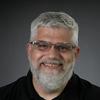ASPIRE Team
Faculty
-
 Dionysios C. AliprantisProfessor, Electrical and Computer Engineering
Dionysios C. AliprantisProfessor, Electrical and Computer Engineering
Google Scholar
Office: Wang 2055
Thrust: Power
Projects: Electric roadways with dynamic wireless power transfer technology for all vehicle classes, co-simulation of electric power and transportation networks, Indiana dynamic wireless power transfer roadway pilot testbed.
-
Brandon AllenVisiting Research Assistant Professor in ENE (Diversity & Culture of Inclusion)
Office: TBA
Thrust: Equity, Diversity & Culture of Inclusion
Projects: Manage programs in Engineering Workforce Development and Diversity and Culture of Inclusion, manage the REU and REM programs, develop MSI partnerships, and participate in center-wide faculty and student recruitment
-
Aaron BrovontResearch Assistant Professor
Google Scholar
Office: WANG 2085
Thrust: Power
Projects: Electrified Roadways
-
 Darcy BullockProfessor, Lyles Family Professor of Civil Engineering; Director of the Joint Transportation Research Program (JTRP)
Darcy BullockProfessor, Lyles Family Professor of Civil Engineering; Director of the Joint Transportation Research Program (JTRP)
Google Scholar
Office: DLR 204a
Thrust: Transportation
Projects: Support vehicle network and transportation systems modeling and control and integration of wireless and wired charging into the infrastructure in an affordable, constructible, maintainable, resilient, and sustainable manner.
-
 Rosalee (Rosie) ClawsonProfessor, Political Science
Rosalee (Rosie) ClawsonProfessor, Political Science
Google Scholar
Office: BRNG 2222
Thrust: Adoption, Diversity & Culture of Inclusion
Projects: Create inclusive pathways to success for diverse individuals and build infrastructure to ensure opportunities for all. Our approach focuses on programs to: (1) Engage the Team, (2) Engage the Educators, and (3) Engage the Students, (4) Engage the Community, and (5) Engage the Professionals. All research projects in ASPIRE include immersive workforce development and inclusion components that are reviewed and evaluated annually.
-
 Konstantina (Nadia) GkritzaProfessor, Civil Engineering; Agricultural & Biological Engineering
Konstantina (Nadia) GkritzaProfessor, Civil Engineering; Agricultural & Biological Engineering
Research Website
Google Scholar
Office: HAMP G167B
Thrust: Adoption, Transportation
Projects: Study technical and societal aspects that impact market acceptance and adoption of disruptive and transformative technologies. Subareas of research include user and societal acceptance, public and economic policy, and techno-economic, environmental, and societal impact.
-
 John HaddockProfessor, Civil Engineering; Director, Indiana Local Technical Assistance Program (LTAP)
John HaddockProfessor, Civil Engineering; Director, Indiana Local Technical Assistance Program (LTAP)
Research Website
Office: CIVL G227
Thrust: Transportation
Projects: Integration of wireless and wired charging into the infrastructure in an affordable, constructible, maintainable, resilient, and sustainable manner.
-
 Matt OhlandProfessor, Engineering Education; Associate Head of Engineering Education
Matt OhlandProfessor, Engineering Education; Associate Head of Engineering Education
Google Scholar
Office: DUDL 3528
Thrust: Engineering Workforce Development
Projects: Direct and oversee ASPIRE Education curriculum development and components across all institutions to establish long-term educational pathways for guiding students into engineering fields. Oversee development of the collegiate and online industry programs and the implementation across all ASPIRE institutions.
-
 Steven D. PekarekEdmund O. Schweitzer, III Professor of Electrical and Computer Engineering
Steven D. PekarekEdmund O. Schweitzer, III Professor of Electrical and Computer Engineering
Office: WANG 2059
Thrust: Power
Projects: Address the fundamental advancements required for extreme fast charging and wireless power transfer enabling technologies and co-lead roles for grid and vehicle operational and planning technologies.
-
Junjie QinAssistant Professor of Electrical and Computer Engineering
Google Scholar
Office: WANG 2051
Thrust: Power
Projects: Address control and planning challenges that arise in the process of integrating wireless roadway charging into electricity markets
-
Siva SeetharamanAssistant Professor
Google Scholar
Office: TBA
Thrust: Power
Projects: Develop co-optimization and control algorithms at the transportation-energy nexus to address grid impacts of EV and wireless charging technologies
